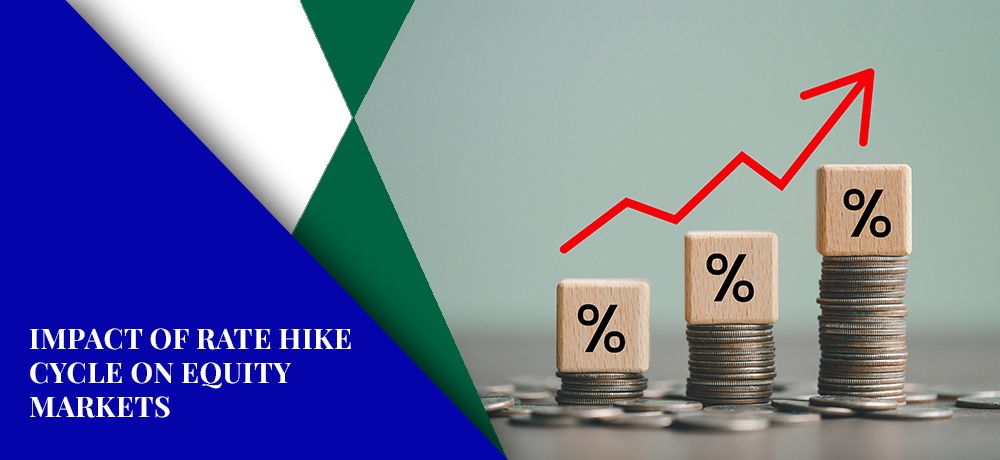Impact Of Rate Hike Cycle on Equity Markets
- David Campbell

As the saying goes, "what goes up must come down." This is certainly true when it comes to interest rates, which have a large impact on the stock market. When the Federal Reserve raises interest rates, it can have a dampening effect on the stock market, especially as the rate hike cycle nears its end.
Before we dive into the impact on equity markets, let's first define what a rate hike cycle is. Simply, a rate hike cycle is a period during which the Fed increases its benchmark interest rate, known as the federal funds rate. This rate serves as a benchmark for other interest rates in the economy, such as those for mortgages and loans.
The Fed typically raises interest rates to curb inflation, which occurs when the cost of goods and services increases faster than wages. By raising interest rates, the Fed makes borrowing more expensive, which can slow down the economy and bring down inflation. However, this can also have negative consequences, such as slowing down growth and reducing the value of stocks.
As the rate hike cycle nears its end, investors may start to worry about the potential negative consequences of higher interest rates. If the economy slows down because of higher borrowing costs, it could lead to lower profits for companies, which can lead to a decline in stock prices.
In addition to the impact on corporate profits, higher interest rates may make stocks less attractive compared to other investments, such as bonds. When interest rates are high, bonds become more attractive because they offer a higher yield. This can shift investment from stocks to bonds, which can put downward pressure on stock prices.
Furthermore, as the rate hike cycle comes to an end, investors may question the health of the economy. If the Fed has been raising rates for an extended period, it can be a sign that the economy is overheating and may be due for a slowdown. This can create uncertainty and cause investors to sell their stocks, leading to a decline in stock prices.
One strategy to mitigate risk during the end of a rate hike cycle is to diversify your portfolio by including a mix of stocks and bonds. This can help to mitigate the impact of any one asset class on your overall portfolio. Also, investors can consider investing in companies with strong balance sheets and steady earnings growth, as these tend to be more resilient during times of economic uncertainty.
In conclusion, the end of a rate hike cycle can have a large impact on the stock market, as it can lead to concerns about the health of the economy and the potential for slower growth. It's generally thought that the end of a rate hike cycle is a riskier time for the stock market, as it can be a sign that the economy is slowing down.